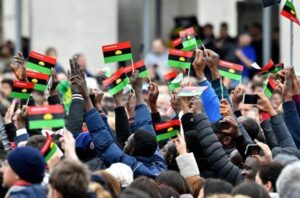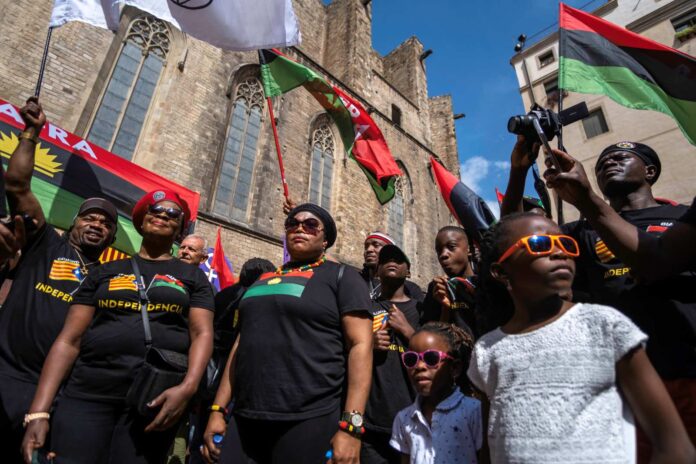The Igbo-Biafra Nationalists (IBN), a pro-Biafra group, has raised concerns about the fiscal decisions of the Federal Government and the Anambra state government, urging them to exercise caution in their expenditures.
In a statement released in Owerri, Imo State, the spokesperson for the group, Edoziuno Chukwunonso, highlighted the need to address the misplaced priorities of the government, as they could potentially hinder development.
The IBN, alongside the Indigenous People of Igbo Nation for Self-determination (IPINS), expressed deep concerns over what they perceive as an insensitive and irresponsible style of governance exhibited by the Federal Government under President Bola Tinubu. They believe that this style of governance is regrettably mirrored by the Anambra State government.
The group emphasized that the reckless expenditures and misguided priorities of the administration demonstrate a clear disregard for the economic, social, and psychological development of the Igbo people.
They argue that the Igbo community, still grappling with the aftermath of the civil war and alleged ongoing marginalization, deserves better.
Drawing attention to alarming expenditure patterns, the IBN revealed that the Tinubu-led administration spent a staggering N244,654,350 on bulletproof tires in a single day.

The group obtained this information from govspend, a portal that tracks government expenditure. They find it troubling that such large sums are allocated to non-essential items while Nigerians face severe economic hardships.
This misallocation of funds highlights the administration’s disconnect from the pressing needs of the people, who require economic relief and sustainable development initiatives.
Similarly, the IBN criticized the lack of prioritization in Anambra State’s budgetary allocations. They noted that the 2024 budget, titled “Changing Gears: The Transformation Agenda Begins,” allocated N68.306 million for maintaining the state’s liaison offices in Lagos and Abuja.
In stark contrast, only N46.2 million was allocated for the maintenance of 264 secondary schools across the state, averaging a mere N175,000 per school.
The group argued that this disparity in funding reflects misplaced priorities, particularly considering the importance of developing and maintaining educational institutions in a region still recovering from the long-term impacts of conflict and marginalization.
They stressed that the Igbo people deserve leaders who prioritize investment in their future rather than squandering resources on non-essential expenditures.




